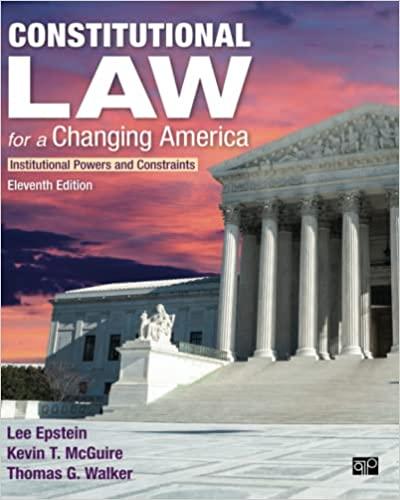Question
(i)McMaster operated a second hand store and purchased an antique chair at a garage salefor $125.00.One week later Lily saw the chair in his store
(i)McMaster operated a second hand store and purchased an antique chair at a garage salefor
$125.00.One week later Lily saw the chair in his store with a price tag of $500.00.Sheoffered
$300.00 but requested that McMaster keep the chair for 2 weeks since she was repainting her living room. McMaster told Lily that the chair was worth much more than $500.00 but he would sell it to her since she seemed to be a nice person. He proceeded to prepare invoice which they both signed. Lily paid a deposit of $100.00 and agreed to pay the balance when she picked up the chair. Lily didn't pay particular attention to the invoice since she didn't believe that the terms of the deal were particularly complicated. McMaster gave her a copy of the invoice and put a "sold" sign on the chair.
The following week, Andrew, an antique dealer visited McMaster's store, carefully examined the chair and offered $10,000.00 for it. The chair, Andrew explained, was a rare specimen dating to 1812.McMaster accepted Andrew's offer.
McMaster contacted Lily and told her that his mother had fallen in love with the chair and he wished to terminate their agreement. He offered to pay Lily $200.00 for her trouble. Lily told him she would like a day to think about it. She was suspicious that McMaster would offer her $200.00 when the chair was only worth $300.00.
Lily reviewed her invoice and discovered that the price in the invoice was $500.00. After receiving several increasingly demanding calls from McMaster and feeling intensely pressured and not sure what to do, Lily confirmed that she would accept his offer of $200.00 to release him from their sale agreement.
The next week Lily saw an article in the local newspaper featuring Andrew and McMaster and the discovery of the rare 1812 chair worth $10,000.00. She immediately recognized the chair.
Lily believes that she still has a binding agreement to buy the chair for $300.00, but is willing to pay the $500.00 amount in the invoice if necessary. She does not feel that the agreement to terminate her purchase agreement with McMaster is binding since he lied to her about his mother and she agreed only because she felt pressured and threatened by his belligerent phone calls. She commences an action against McMaster and requests:
(i)a declaration that the agreement to release McMaster is null and void;
(ii)rectification of the invoice and specific performance of the agreement for the purchase and sale of the chair for $300.00, or alternatively specific performance of the purchase agreement for $500.00;
(iii)an injunction to prohibit the sale of the chair to Andrew;
(iv)damages for breach of contract in the amount of $9,700.00;
(iv)punitive damages of $20,000.00.
Required: Examine Lily's case, McMaster's position in defending the lawsuit, the applicable principles and likely result of the litigation.
(ii)While the lawsuit is pending, a fire breaks out in McMaster's store and the chair is destroyed. How does this affect the rights and obligations of the parties? Does the principle of frustration apply?
(iii)Assume there is no fire. However, while the lawsuit is pending, McMaster has the chair appraised for insurance purposes. The appraiser confirms that the chair is not an authentic antique, but is a simple replica which is worth $75.00. Both Lily and Andrew find out about the appraisal and both now refuse to purchase the chair. McMaster comes to you and asks that you advise him if he has any legal basis to commence an action against either Lily or Andrew and, if so, what he will be entitled to claim.
Step by Step Solution
There are 3 Steps involved in it
Step: 1

Get Instant Access to Expert-Tailored Solutions
See step-by-step solutions with expert insights and AI powered tools for academic success
Step: 2

Step: 3

Ace Your Homework with AI
Get the answers you need in no time with our AI-driven, step-by-step assistance
Get Started


